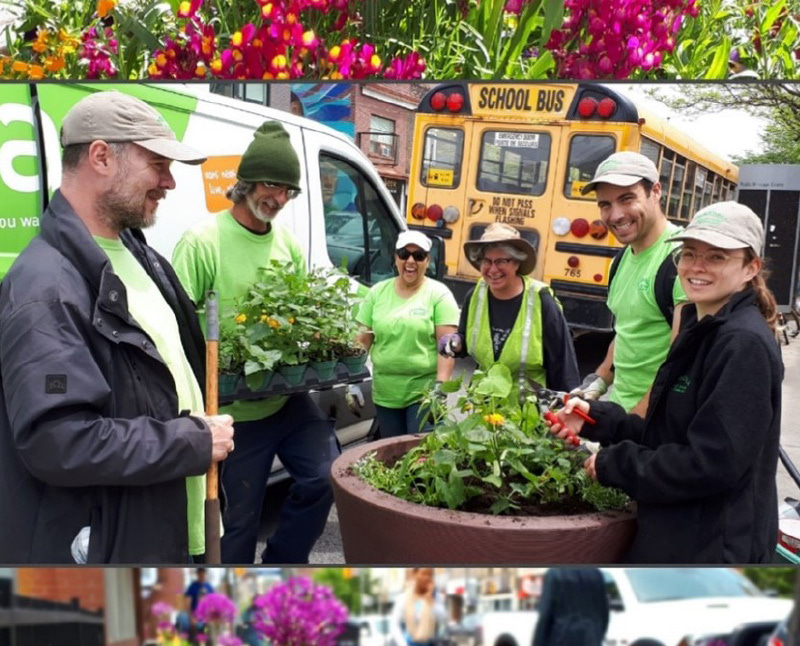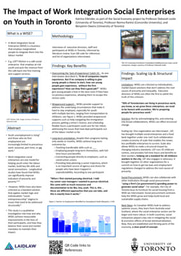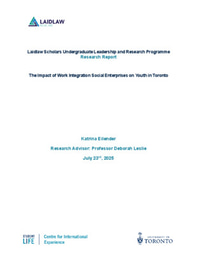Research Project Outline: Navigating Precarity for Youth in Toronto: The Role of The Social Economy

Supervisor: Professor Deborah Leslie
Co-researcher: Benjamin Owens
Project Background
Technology, migration patterns, and macroeconomic shifts are bringing in sea changes to the labour landscape all over the world, and we are decades behind in terms of understanding the implications of these changes, let alone actually responding to them. One potential policy solution that has emerged are Work Integration Social Enterprises (WISEs). Breaking that phrase down, “work integration” means that these are programs that integrate people who are sidelined back into the workforce with social support and training: people who have been involved in the criminal justice system, at-risk youth, immigrant women, people with disabilities, among others. The social enterprise part means that these are businesses with a social purpose; they have to balance their goal of employing marginalized groups with serving their customers and maintaining enough economic stability to stay in business.
The presence or absence of stable employment for youth is a crucial factor in economic and social wellbeing and ability to succeed in the workforce in the future. Moreover, research has already found that WISEs also have the potential to reduce phenomena that are socially and economically costly, such as homelessness. My project focuses on youth specifically: At-risk young people are some of the most vulnerable people in the city, but youth is also when people have the most potential for social mobility. Work integration social enterprises seem like a promising way to mitigate some of the economic and social precarity facing at-risk youth. This project will investigate how WISEs accomplish this (or fail to) in practice, what role they play in the lives of vulnerable youth, and how they are changing in a shifting economic and political landscape.
Methodology
First, I will conduct a thorough review of the government and academic literature on WISEs. I will use the results of that investigation in combination with the overarching goals of the project to craft interview questions for WISE staff and youth enrolled in their programs.
I will identify and contact WISEs working in the Greater Toronto Area will be, inform them of the purpose of the study, and request interviews with them.
My sampling method for individual interviewees will be purposive (reaching out to individuals who have particular roles relevant to the study, such as staff at WISEs) and snowball (asking participants who else should be interviewed to fully understand the issue). I hope to speak to 10-15 participants in total; my current estimate is 12. At each organization, I hope to speak to at least one staff member and at least one participant, in order to understand how WISEs interact with youth from the perspective of the WISE and the perspective of the youth themselves. In this way, my sample will be stratified to some extent.
Once the interviews are completed, I will transcribe and qualitatively code them using NVivo software. Finally, I will analyze and synthesize the findings into a paper which can be used by policymakers, advocates, and WISEs themselves.
Objectives
Through this project, I will seek to understand what role WISEs fulfill in addressing issues youth face such as poverty, lack of social connection, and involvement in the criminal justice system -- when they work as a policy tool, why and how do they work? Building on that foundation, I will also seek to understand how economic and political pressures are affecting social economy programs such as WISEs and how they can maintain their impact going forward.
Image Credit: Parkdale Green Thumb



Please sign in
If you are a registered user on Laidlaw Scholars Network, please sign in